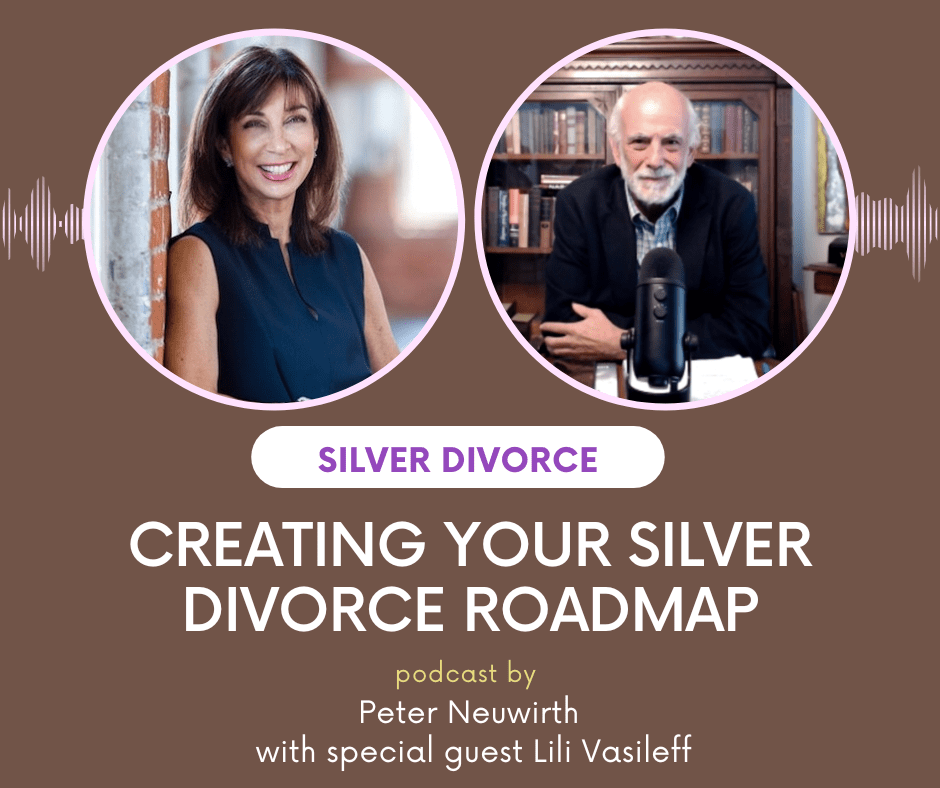Planning & Divorce
LILI VASILEFF
by Carolyn Ellis
Ms. Ellis is Features Editor for LIFE&Health Advisor. Connect with her by e-mail: cellis@lifehealth.com
Lili Vasileff is the founder and president of Divorce & Money Matters, LLC, based in Greenwich, Connecticut. She is a specialist in financial mediation, wealth management, and divorce financial planning. She is also founder and past president of the Association of Divorce Financial Planners (ADFP), the leading organization for professionals who assist women and men through today’s complex process of divorce. We talked with Lili about trends in the growing field of divorce financial planning and how she guides clients from victim to victory.
L&HA: Do you work exclusively with women?
LV: When I started 100 percent of clients were women, but today two-thirds are. Women going through divorce are called upon to make long-term financial decisions. Many have been paying day-to-day bills, but they haven’t been doing investment, retirement, or estate planning. I’m generalizing here, but men tend to have more experience with a financial planner, broker, banker, and estate attorney.
Women are open to learning and consensus-building; they want to make sure they’re taking care of the bigger picture, meaning them and their children and not just how much money they can get. Now I’m seeing more men who want to know what’s best for the family overall.
L&HA: What brought you to this field that you helped to establish, the divorce financial professional?
LV: I started my practice in the early 1990s after having gone through a difficult divorce in California where I had ended up drafting my own divorce agreement, even though I was working with top divorce attorneys in Los Angeles. Here in Connecticut, I met many individuals who were going through divorce with no grounding in finance. They were being directed through the process by attorneys and were panicking. I saw that if the process were different, individuals could learn to be financially accountable for their own well-being. I set out to change the process.
L&HA: You’ve written a book, The Ultimate Divorce Organizer: An Interactive Guide to Achieving the Best Legal, Financial and Personal Divorce to help people manage the process.
LV: The Ultimate Divorce Organizer is a workbook where individuals can take notes, create to-do lists, collect business cards, and work through the divorce process step-by-step. Whether it be therapy, coaching, legal or financial, people have millions of papers piled everywhere. This book gives them the structure and they fill it in.
L&HA: What are your key recommendations for divorcing women and men?
LV: The first recommendation is budgeting. What are the mutually agreed upon resources that you can both use to pay for divorce? Like a wedding, people need to determine how much they are going to pay for certain things and how. The second recommendation is don’t assume your lawyer knows best. Attorneys know the law. You and your family have priorities, challenges, and concerns, and you have to express them.
L&HA: This requires some soul-searching and a measure of courage.
LV: It does. I also tell divorcing spouses never to neglect the tax consequences of any financial decision. Taking that one step further, make enforceable all the financial provisions of the settlement. In my 25 years in this field, the most prevalent behavior I see post-divorce or just prior to settlement is people thinking, “It’s over. I’m going to take a break.” You can’t take a break. There are actions to be implemented that are timely and risky if you don’t.
L&HA: How is divorce different today?
LV: There are more avenues by which people can get divorced — mediation, collaboration, and litigation. There are more resources, including divorce financial planners. Blended families are common now. People live longer and family configurations have many permutations.
L&HA: Are women more often the initiator?
LV: In the early years, I would say it boiled down to egregious fault, meaning addiction or violence. But for women in their mid-fifties or older, it comes down to Baby Boomers being Baby Boomers. We’re better educated and will live longer; we expect more from our spouse and from life. I don’t think anybody’s hesitating anymore. They want to know, what’s the lay of the land if I get a divorce? They’re exploring the consequences.
L&HA: Does divorce mean financial ruin, especially for those in the “gray divorce” category?
LV: Graying Baby Boomers are worried about their standard of living during 20-30 years of retirement. They have a finite capacity to replenish any assets they use. They may have certain debts outstanding that compromise their cash flow. They have health concerns, and Obamacare is expensive. They estimate high deductibles or there’s a shortfall before they qualify for Medicare coverage. Many are sandwiched between elderly parents and kids who are in college or are under-employed and living with them.
The chief concern of individuals going into divorce between ages 55 – 65 is how will I meet all of these needs, now that I only have half the pie? Does it mean financial ruin? It means compromise. Your last child may not be able to attend an Ivy League college or you may have to stop supporting relatives.
L&HA: No one knows what’s really going to happen.
LV: The only guarantee in divorce is that you need to make a plan. A person could get hit by a truck when they leave the courtroom, lose a job, or become disabled. I help my clients have a game plan for a, b, and c. We talk about prioritizing their assets, strategies for filing for Social Security benefits if they qualify, and how to lower the cost of certain debts.
L&HA: You’re able to bring clients from victim to victorious?
LV: Women often come up with interesting strategies for how to survive and avoid financial ruin. My goal is to provide clients with a road map, plus peace of mind and confidence so that they have a vision for their future and know how to take each step to get there.
L&HA: Legislation is being proposed in many states to reform alimony laws. Do we need to change the legal process for divorce?
LV: When you get married, you get a piece of paper and it’s done. You should be able to do that for a divorce. The process is changing from adversarial litigation toward a more holistic approach. Financial education has to start earlier in people’s lives, even in high school. People should be economically equal in a marriage — of equal experience, exposure, and access to what’s going on.
L&HA: Is December a difficult time for people who are divorcing?
LV: Many people psychologically desire to be divorced by year-end and don’t care what it takes to get there. Others don’t want to deal with divorce during the holidays. Evaluating the tax impact of filing married jointly versus separately should be part of the equation but shouldn’t drive the process. Some draft and sign the agreement in December but file early in January.
L&HA: You’ve mentioned feeling like a therapist sometimes. How challenging is this work?
LV: Divorce financial planning is wrought with professional liability and risk. Divorcing people are unhappy people. They strike out in unexpected or unpredictable ways. It takes the right financial professional with the right expertise and experience to succeed and survive.
L&HA: Any yet you find satisfaction?
LV: I love to see people blossom with the right amount of help. Recently a client came to one of my speaking engagements. She wanted after five years to tell me how well she’s doing in her new career and how excited she was about her new life. That keeps me going.
– See more at: https://www.lifehealth.com/profile-lili-vasileff/#sthash.NFZ7B07i.oNbDZyuh.dpuf



